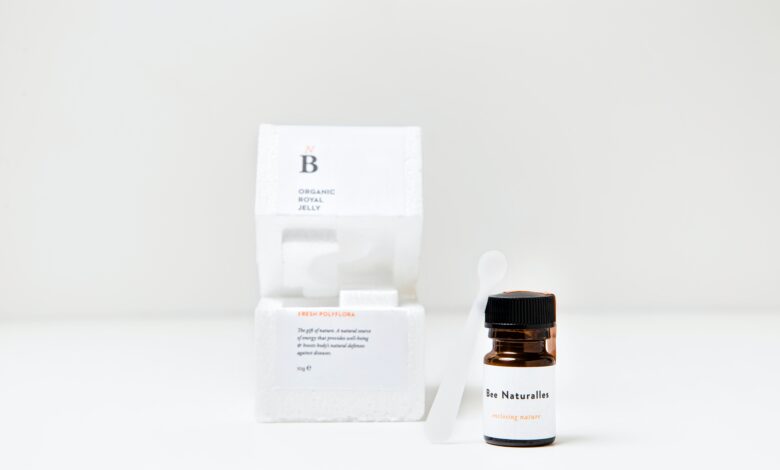Is the Health API the Future of Healthcare?

Introduction to Health APIs
Welcome to the future of healthcare, where technology is revolutionizing the way we access and manage our medical information. One key player in this digital transformation is the Health API. If you’re wondering what exactly a Health API is and how it can impact your healthcare experience, you’ve come to the right place! In this article, we’ll explore the ins and outs of Health APIs, their benefits, successful implementations, potential challenges, and what lies ahead for the future of healthcare. So buckle up as we embark on an exciting journey into the world of Health APIs that could shape the way we receive care forever!
How Health APIs Work
Health APIs, or Application Programming Interfaces, have revolutionized the way healthcare systems operate and interact with each other. These powerful tools allow different software applications to communicate and share data seamlessly. But how exactly do Health APIs work?
At their core, Health APIs act as intermediaries between different healthcare platforms, facilitating the exchange of information in a structured manner. They enable seamless integration between electronic health records (EHRs), telemedicine platforms, wearable devices, and other digital health solutions.
To understand how Health APIs work, it’s important to grasp the concept of interoperability. Health API standards ensure that data is exchanged in a consistent format across various systems. This standardized approach allows for secure transmission of patient information while ensuring privacy and compliance with regulations such as HIPAA.
When a user interacts with an application that utilizes a Health API, for example scheduling an appointment through a mobile app connected to their EHR system, the API acts as a bridge between these two platforms. It retrieves necessary patient information from the EHR system and securely transfers it to the scheduling application.
In this scenario, the Health API enables real-time access to accurate patient data without requiring manual entry or duplicate record creation. It eliminates human error while enhancing efficiency and improving patient care outcomes.
Furthermore, Health APIs can also facilitate communication between healthcare providers by enabling secure sharing of clinical data across different organizations or systems. For instance, if a primary care physician needs access to specialist reports from another organization for effective treatment planning, they can retrieve this information through authorized use of relevant Health APIs.
Understanding how Health APIs work is crucial in unlocking their potential benefits within the healthcare industry. By enabling seamless integration of disparate systems and promoting efficient exchange of data among various stakeholders involved in patient care delivery processes – including patients themselves – these technologies hold immense promise for transforming healthcare delivery models on both individual and population levels.
Benefits of Using Health APIs
Improved Data Sharing and Accessibility
One of the major benefits of using health APIs is the improved sharing and accessibility of data. With APIs, healthcare providers can securely exchange patient information across different systems, enabling a seamless flow of data between hospitals, clinics, pharmacies, laboratories, and other healthcare facilities. This not only enhances collaboration among healthcare providers but also improves patient care by ensuring that all relevant information is readily available.
Enhanced Patient Engagement
Health APIs also play a crucial role in empowering patients to take control of their own health. By integrating with consumer-facing applications such as fitness trackers or mobile health apps, APIs enable individuals to easily access their personal health records, track their progress towards wellness goals, and receive personalized recommendations for maintaining good health. This fosters greater engagement and accountability in managing one’s well-being.
Streamlined Workflows and Efficiency
By automating processes through API integration between different systems within a healthcare organization, workflows can be streamlined and efficiency can be greatly enhanced. For example, with API integration between electronic medical record (EMR) systems and billing software or pharmacy management systems, administrative tasks such as submitting claims or processing prescriptions can be automated leading to reduced errors and increased productivity.
Facilitates Innovation in Healthcare Technology
Health APIs also provide opportunities for innovation in healthcare technology. By making it easier for developers to build new applications or add-on features to existing platforms using standardized interfaces provided by these APIs, there is potential for the development of novel solutions that improve patient outcomes or optimize clinical workflows. This encourages creativity among developers while fostering continuous improvement in the realm of digital healthcare solutions.
Cost Savings through Interoperability
Interoperability achieved through effective utilization of health APIs can lead to significant cost savings within the healthcare industry. Seamless communication between different systems eliminates the need for manual data entry or time-consuming administrative tasks that may contribute to inefficiencies or errors. Furthermore, interoperable systems reduce duplicative tests or procedures, resulting in cost reductions for both patients and healthcare providers.
In conclusion
Examples of Successful Implementations of Health APIs
1. Novant Health API Integration: One notable example of a successful implementation of health APIs is the collaboration between Novant Health and various healthcare partners. By utilizing their API, Novant Health has been able to seamlessly integrate patient data from electronic health records (EHRs), wearable devices, and telehealth platforms. This integration allows for real-time monitoring and analysis, enabling improved care coordination and personalized treatment plans.

2. Fitbit’s Partnership with Google Fit: Another successful implementation involves the partnership between Fitbit and Google Fit. Through their APIs, these two fitness tracking giants have joined forces to help individuals better manage their health by providing comprehensive data insights. Users can effortlessly sync their activity data across both platforms, giving them a holistic view of their physical well-being.
3. Apple HealthKit Integration with Epic Systems: The collaboration between Apple’s HealthKit API and Epic Systems’ EHR platform has revolutionized how patients interact with their healthcare providers. With this integration, patients can securely share vital health information such as allergies, medications, and lab results directly from the Apple Health app to their healthcare provider’s system in real-time.
4. MyFitnessPal Integration with Weight Watchers: In an effort to promote healthy lifestyles and weight management, MyFitnessPal collaborated with Weight Watchers through API integration. This seamless connection enables users to automatically synchronize food intake information recorded on MyFitnessPal into their Weight Watchers’ account, allowing for accurate calorie tracking while following a specific weight loss program.
These examples highlight just a few successful implementations of health APIs that have transformed the way we approach healthcare management and wellness tracking today.
Potential Challenges and Concerns
While Health APIs offer numerous benefits and hold great promise for the future of healthcare, there are also potential challenges and concerns that need to be addressed. One major concern is ensuring the privacy and security of patient data. With the exchange of sensitive health information through APIs, it becomes crucial to have robust security measures in place to protect against unauthorized access or breaches.
Another challenge is interoperability among different systems. Healthcare organizations often use a variety of software applications that may not communicate effectively with each other. This can pose obstacles when implementing Health APIs as seamless integration is necessary for efficient data sharing.
In addition, there may be resistance from healthcare providers who are hesitant to adopt new technology or change their existing workflows. It will require education, training, and buy-in from all stakeholders to ensure successful implementation of Health APIs.
Furthermore, regulatory compliance remains a concern. The healthcare industry must adhere to strict regulations such as HIPAA (Health Insurance Portability and Accountability Act) which governs the protection of patient health information.
There could be potential ethical dilemmas surrounding the use of AI algorithms in analyzing large amounts of patient data through Health APIs. Ensuring transparency and accountability in how these algorithms are developed and used will be essential.
Addressing these challenges requires collaboration between healthcare providers, technology companies, policymakers, and regulators. By doing so, we can work towards harnessing the full potential of Health APIs while safeguarding patient privacy and advancing quality care delivery across the board
The Future of Healthcare with Health APIs
As technology continues to advance at a rapid pace, the future of healthcare is being shaped by innovative solutions like Health APIs. These application programming interfaces are revolutionizing the way healthcare providers and patients interact, enabling seamless data exchange and empowering individuals to take control of their own health.
One of the key advantages of Health APIs is their ability to securely connect different healthcare systems and applications. This interoperability allows for real-time sharing of patient information across various platforms, enhancing care coordination and eliminating the need for repetitive data entry. With this streamlined approach, healthcare professionals can make more informed decisions about diagnosis and treatment options.
Furthermore, Health APIs also pave the way for personalized medicine. By integrating data from wearable devices such as fitness trackers or smartwatches into electronic health records, physicians can gain valuable insights into a patient’s lifestyle habits and overall well-being.
In addition to improving patient care, Health APIs also hold great promise in research and population health management. By aggregating anonymized data from multiple sources, researchers can identify patterns and trends that contribute to disease prevention strategies or clinical trial recruitment efforts. Likewise, public health agencies can leverage these insights to develop targeted interventions aimed at improving community well-being.
However, as with any technological advancement in healthcare, there are potential challenges and concerns surrounding the use of Health APIs. Privacy and security must be paramount when handling sensitive patient information across multiple platforms. Robust safeguards must be put in place to ensure that data breaches do not occur while maintaining compliance with relevant regulations such as HIPAA.
Despite these challenges, it is clear that Health APIs have immense potential in shaping the future landscape of healthcare. The ability to seamlessly share information across systems will lead to improved efficiency in delivering care while also promoting collaboration between healthcare providers and patients alike.
In conclusion (sorry!), embracing the potential offered by Health APIs holds significant benefits for healthcare systems worldwide. The future of healthcare lies in leveraging technology to improve patient outcomes
Conclusion: Embracing the Potential of Health APIs
As we have explored in this article, health APIs are revolutionizing the healthcare industry. They offer a wide range of benefits, including improved interoperability, streamlined processes, enhanced patient care, and increased efficiency. With successful implementations already taking place around the world, it is clear that health APIs have immense potential to transform healthcare delivery.
However, as with any technological advancement, there may also be challenges and concerns along the way. Privacy and security issues must be carefully addressed to protect sensitive patient data. Standardization efforts should continue to ensure seamless integration across different systems and platforms. And ongoing collaboration between healthcare providers and technology companies will be vital for maximizing the full potential of health APIs.
Despite these challenges, it is undeniable that health APIs hold great promise for improving healthcare outcomes globally. By enabling secure data exchange and empowering innovation in medical software development, they pave the way for personalized medicine tailored to individual patients’ needs.

The future of healthcare with health APIs looks bright indeed – from telehealth consultations made possible through API integrations to real-time monitoring of chronic conditions using wearable devices connected via API interfaces. The possibilities are endless.
As we move forward into this exciting era of digital transformation in healthcare, let us embrace the potential of health APIs wholeheartedly. By leveraging their power responsibly and thoughtfully addressing any concerns that arise along the way, we can create a future where access to quality care is enhanced by seamless connectivity between patients and providers.
So let’s harness the potential of novant health api (our keyword) together – building a healthier world one API integration at a time!




